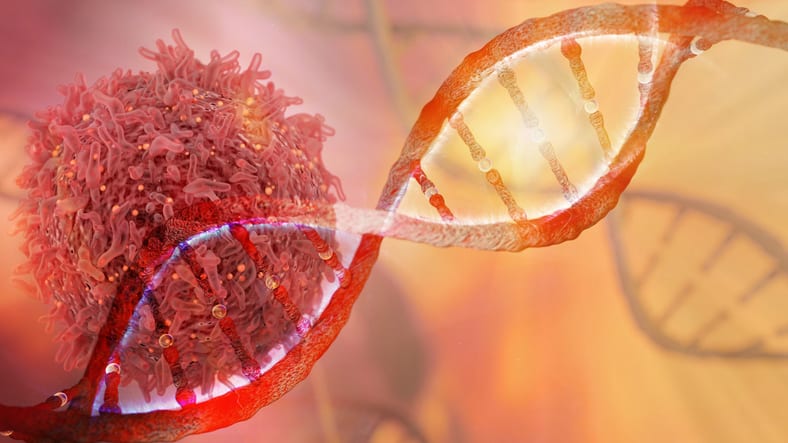Neurosurgery
Nationally Recognized Neurosurgeons
The brain, spine, and nervous system work together to control every part of your life. When cancer affects this complex system, you need expert care that treats not just the disease, but your whole person. Our nationally recognized neurosurgeons bring precision, innovation, and minimally invasive techniques to create a care plan focused on your unique needs.

Advanced Care from a Team You Can Trust
Every brain and nervous system cancer is unique, and so is every patient. That’s why we take a multidisciplinary approach, bringing together expert neuro-oncologists, oncologists, neurosurgeons, specialists, and support services to create a personalized treatment plan that fits your needs.
Here at Providence Swedish, you’ll receive care in a state-of-the-art neurosurgical facility designed to support you and your loved ones through every step — from your first consultation to surgery, recovery, and rehabilitation. We combine cutting-edge research with a commitment to listening to you, so you always feel heard, supported, and confident in your care.
Advanced Neurosurgery
We offer advanced neurosurgeries that focus on effective treatment while prioritizing quality of life. Surgical options include:
What to Expect
Your care team takes time to understand you beyond your diagnosis — learning everything from your physical and emotional needs to your personal goals. This personalized approach is supported by the expertise of our entire neurosurgery team. Our specialists collaborate in multidisciplinary tumor boards, where cancer experts come together to review complex cases and share insights.
About a week before surgery, we'll schedule a pre-admission visit to:
- Assist with any remaining pre-surgical lab work or tests
- Review what will happen during your surgery
- Explain potential side effects
- Discuss medications and post-surgery care, including in-home help or equipment if needed
You'll receive information to prepare for your hospital admission. If you have any questions after your pre-admission appointment, you can reach out to your nurse or care coordinator, who will be happy to help.
On the day of your surgery, you will meet with an anesthesiologist, who confirms details of your medical record, clarifies any questions about your medical history, and performs a physical exam.
During this time, you can discuss the plan for your care, express any concerns about potential side effects, and ask any questions that you have about the anesthesia.
The specifics of your surgery are determined by your surgery type and individual needs, but one factor is always consistent – you’re being treated by an expertly trained team of surgeons, anesthesiologists, surgical nurses, and technicians.
The length of your surgery depends on several factors, including the type of procedure, whether reconstruction is being done, and the complexity of the procedure. The care team will inform your loved ones of your progress and provide updates during surgery.
Following surgery, you’ll be moved to recovery where your care team can monitor your vital signs and manage your pain as the anesthesia wears off, if applicable.
Postoperative care instructions will be provided before being discharged. Instructions could include information about wound care, activity restrictions, and pain management.
For more extensive surgeries – such as tumor removal from the brain or spinal cord, or surgeries requiring reconstruction – you may be required to stay overnight, or longer, to ensure proper recovery.
Typically, you'll have follow-up appointments after surgery for the first few weeks. This is to monitor your healing and effectively manage the potential for complications. Your follow-up appointment schedule will depend on the type of surgery you have.
As time goes on, we'll see you less frequently, but you'll still come in for regular checkups. During these visits, we manage any ongoing treatments, such as medical or radiation oncology, and monitor for signs of recurrence.
We also offer extensive supportive care services to help you through every treatment stage.
Learn more about our supportive care services.
Frequently Asked Questions
It’s natural to feel nervous about surgery, but your care team will talk you through the process, helping you prepare for surgery and answering all your questions well in advance.
As part of your personalized care plan, we offer advanced surgical options tailored to your diagnosis and goals, including minimally invasive procedures, when possible, along with reconstruction if needed. After surgery, we provide detailed recovery instructions and make sure that you have all the ongoing support you need to help you heal with confidence.
Surgery may be all that your care plan requires if your cancer was diagnosed in its early stages and hasn’t spread to other parts of the body.
However, surgery can be accompanied by medical oncology treatment such as chemotherapy, immunotherapy, hormone therapy and targeted therapy to meet your specific needs and give you the highest likelihood of a successful outcome.
Radiation may also be recommended to help shrink tumors prior to surgery or following surgery to decrease the chance of recurrence.
Your recovery time depends on which type of surgery you have.
You may be in the hospital for one or two days following your surgery, although some procedures are done on an outpatient basis. Some patients can return to their regular activities within a few weeks, while others may take longer.
Before surgery, your care team will walk you through what to expect and provide a detailed recovery plan. This includes guidance for managing pain, any activity restrictions, and information about follow-up visits — so you can make arrangements and feel confident going into surgery.
Surgery can leave scars. The extent of scarring and its visibility depends on the type of surgery that you have. Your care team can talk to you about any concerns, including options for reconstructive surgery, if suitable, and ways to improve scar healing and appearance.
Treatment timelines vary depending on your diagnosis. Some surgical procedures are done on an outpatient basis. More complex cases may require a hospital stay.
Medical oncology and radiation treatments typically involve multiple treatment sessions over a period of days or weeks. Treatment timelines vary depending on the type and stage of your cancer. Your care team reviews your treatment plan with you, as well as any options that may impact length, frequency and duration of treatment.
Following active treatment, you will see your physician periodically to monitor any signs of recurrence.
Neurosurgery could cause changes in how you move or function, but it depends on the type of surgery and the area being treated. Some people experience temporary changes, like weakness, balance issues, or speech difficulties, which often improve with time and therapy. More complex surgeries — especially those involving areas of the brain or spine that control movement — may have longer-lasting effects. If you experience changes, physical, occupational, or speech therapy can help you regain strength and confidence in your daily activities.
Rehabilitation may be an important part of your recovery, depending on the type of neurosurgery you have and how it affects your movement, speech, or cognitive function. The Providence Swedish Cancer Institute is one of only a handful of national programs to offer a dedicated rehabilitation program led by a fellowship-trained rehabilitation physician.
The program integrates the medical management of treatment-related side effects and a variety of other physical, occupational, speech, and behavioral therapies, which have been shown to improve overall health for people living with cancer.
There’s no one-size-fits-all diet during cancer treatment but eating well can help you feel stronger and support your recovery. Many people find it helpful to focus on small, balanced meals with plenty of protein, fruits, vegetables, and whole grains. A Providence Swedish Cancer Institute nutritionist can help you find foods that work for your needs, manage side effects like nausea or appetite changes, and support your overall well-being throughout treatment.
We provide a full range of supportive care services to support you during and after your cancer treatment. Some of these services include:
- Art therapists
- Cancer rehabilitation (onco-physiatry)
- Care coordinators
- Genetic counseling (cancer geneticist)
- Health educators
- Medical massage (edema, lymphedema management)
- Music therapist
- Naturopaths
- Nutritionists
- Oncology nurses
- Social workers
- Speech and language pathology
We can also help with finances, food, transportation, and other challenges for eligible patients through our patient assistance fund.
See the full list of supportive care services.
Note: Some services are provided by local partners and vary based on location. Please contact your clinic for more information.
News & Info From Our Experts





